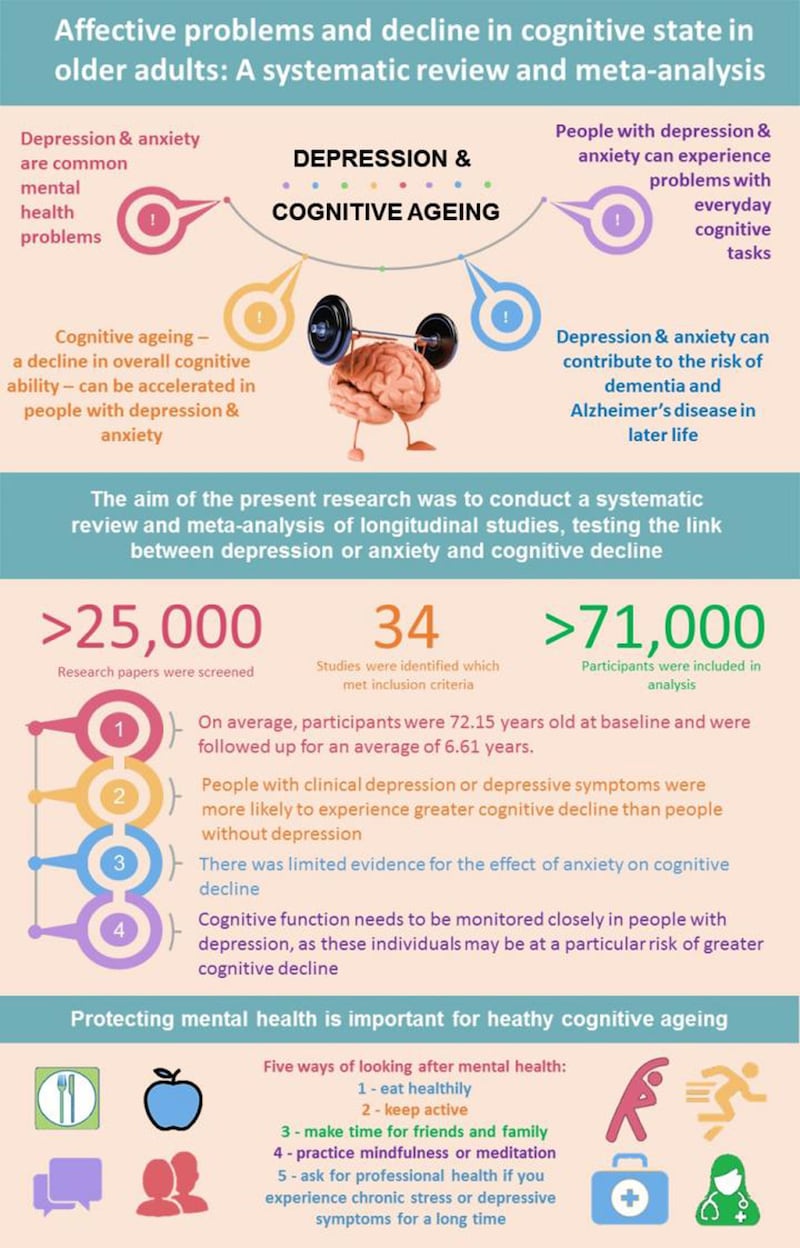Depression may speed up the brain’s ageing process, according to new research by psychologists.
While previous studies have shown that individuals with depression have a greater risk for dementia in later life, researchers from the University of Sussex say their work is the first “comprehensive evidence” of depression’s impact on overall cognitive decline in the general population.
The psychologists conducted a meta-analysis of 34 studies, where evidence from more than 71,000 participants was reviewed.
The team focused on the link between depression anxiety and decline in cognitive function over time, excluding participants who were diagnosed with dementia at the start of studies.

The researchers looked at the rate of decline of overall cognitive state in older adults, which included memory loss, key executive functions such as decision making and the speed at which the participants processed information.
They found that people with depression experienced a greater decline in cognitive state in older adulthood than those without depression.
The team is calling for calling for a greater awareness about supporting mental health to protect brain health in later life, saying that at least one in five people in the UK experience symptoms each year.
Dr Darya Gaysina, a lecturer in Psychology at the University of Sussex, said: “This study is of great importance – our populations are ageing at a rapid rate and the number of people living with decreasing cognitive abilities and dementia is expected to grow substantially over the next thirty years.
Recent research from @Sussex_Psych has found a link between depression and faster brain ageing. PhD student @AmberJohnSussex shares some practical tips to look after your mental health and well-being pic.twitter.com/fw6WqxH4RZ
— University of Sussex (@SussexUni) May 25, 2018
“Our findings should give the government even more reason to take mental health issues seriously and to ensure that health provisions are properly resourced.
“We need to protect the mental wellbeing of our older adults and to provide robust support services to those experiencing depression and anxiety in order to safeguard brain function in later life.”
The study is published in the journal Psychological Medicine.








